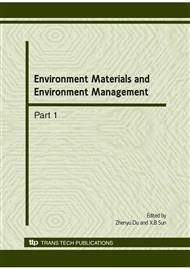p.71
p.76
p.81
p.87
p.91
p.96
p.100
p.103
p.109
Low-Carbon Economy: Terms of Trade and Welfare Effect of China
Abstract:
Controlling CO2 emissions without hindering economic development is a major challenge for China. Carbon barrier is a new trade barrier related with carbon trading, which will be a new tool of protectionism in foreign trade. This article expounds the relationship between international trade and economic growth by a standard trade model, analyzes the impact on trade and economic growth of carbon barrier by join a new variable in the model. We suggest that China should create a favorable international environment, draw up carbon trading policies and regulations, actively participate in international carbon trading, fight for pricing by boosting domestic carbon trading market, and take an active and effective adjustment of its industrial structure, increasing the share of service trade as well as other low-carbon forms and methods of trade to cope with the challenge.
Info:
Periodical:
Pages:
91-95
Citation:
Online since:
June 2010
Authors:
Price:
Сopyright:
© 2010 Trans Tech Publications Ltd. All Rights Reserved
Share:
Citation:


